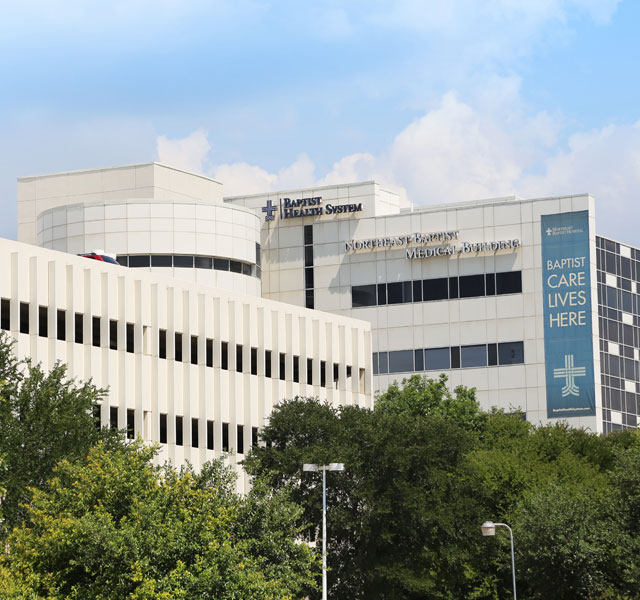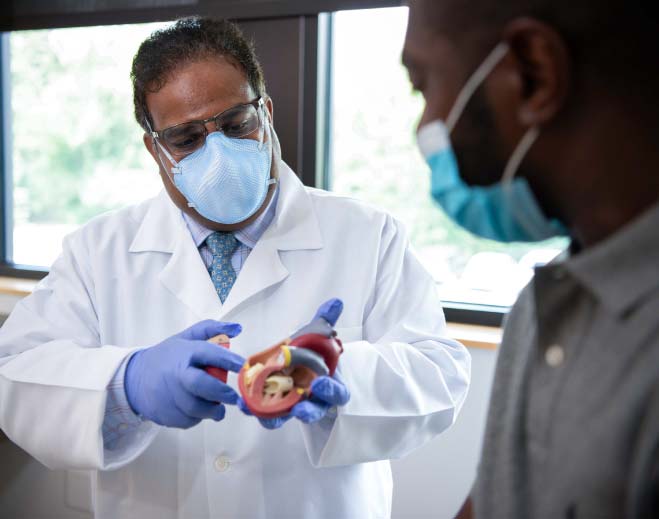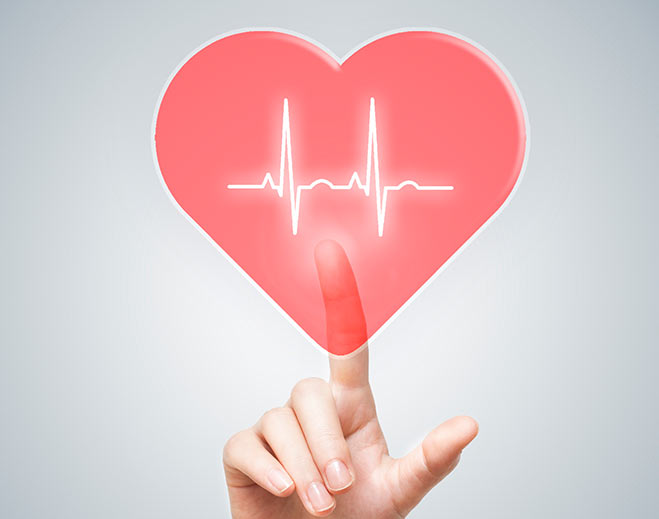Arrhythmia
Request a Cardiologist Referral
What is Arrhythmia?
Arrythmia is any problem related to heart rhythm, including irregular heartbeat patterns. The heart is an elegant and complex organ that relies on an electrical system to coordinate heartbeats. Arrhythmia happens when this system malfunctions and it causes the heart to pump less efficiently.
Simply put, arrhythmia is the medical term for an irregular heartbeat. With arrhythmia, the patient’s heart can beat too fast (a.k.a. tachycardia), too slowly (a.k.a. bradycardia) or it may also beat with an irregular rhythm. As a result, you may experience palpitations (heart skipping), shortness of breath or fatigue.
What Is AFib?
Atrial fibrillation (AFib) is one of the most common types of arrhythmia. With AFib, the atria — the two upper chambers of the heart — fire in a fast and often uncontrolled manner. Instead of contracting normally, the atria quiver causing the electrical signals to arrive in the ventricles in an irregular fashion, and the blood may pool and/or clot. If a blood clot becomes lodged in an artery in the brain, a stroke may occur.
Arrhythmia Causes and Risk Factors
Several factors may affect the heart’s rhythm and lead to arrhythmia, such as:
- Changes to the heart tissue
- Blood imbalances
- Certain medicines
- Issues with the electrical signals in the heart
- Stress, anxiety, anger, or pain
There are cases when the cause of a person’s arrhythmia is unknown. But some things that may increase your risk for having arrhythmia include:
- Old age
- Being exposed to air pollutants
- Drinking alcohol
- Family history of arrhythmia
- Gender (studies suggest that men are more likely to experience arrhythmia than women)
- Race or ethnicity
- Smoking
- Surgery involving your heart, esophagus and/or lungs
- Using illegal drugs
Arrhythmia Symptoms
The truth is, arrhythmia may not show obvious symptoms, especially in the early stages. Patients may notice signs of arrhythmia from time to time, such as irregular heartbeat and palpitations, and these signs may become more frequent as time goes on.
However, if you experience some of the more serious signs and symptoms of arrhythmia, please speak with a doctor right away. These include:
- Anxiety
- Blurry vision
- Breathing difficulties
- Chest pain
- Dizziness
- Excessive sweating
- Fainting
- Fatigue
- Foggy brain
- Weakness and light-headedness
When left untreated, arrhythmia may lead to life-threatening conditions such as heart attack, heart failure and stroke. Please see a doctor as soon as you or someone you love notice or experience signs and symptoms of arrhythmia.
Arrhythmia Treatment Options
The American Heart Association says that most types of arrhythmia are harmless and can be left untreated. However, there are also more serious types, such as AFib, that may require a treatment plan and/or therapy. Some of the usual treatments that doctors advise for arrhythmia include:
- Lowering blood pressure
- Keeping healthy cholesterol levels
- Taking certain medications for arrhythmia
- Procedures (i.e., surgery, cardioversion, catheter ablation, etc.)
- Exercising regularly
- Maintaining a healthy weight
- Quitting smoking
- Eating heart-healthy foods
What Is Electrophysiology?
Electrophysiology studies (EPS) are tests that evaluate the electrical activity of the heart to determine the cause of a patient’s irregular heartbeat or arrhythmia. EPS results can help your doctor determine what type of treatment is best for your condition, whether you need medicine, cardiac ablation, a pacemaker, surgery or mere lifestyle changes.







